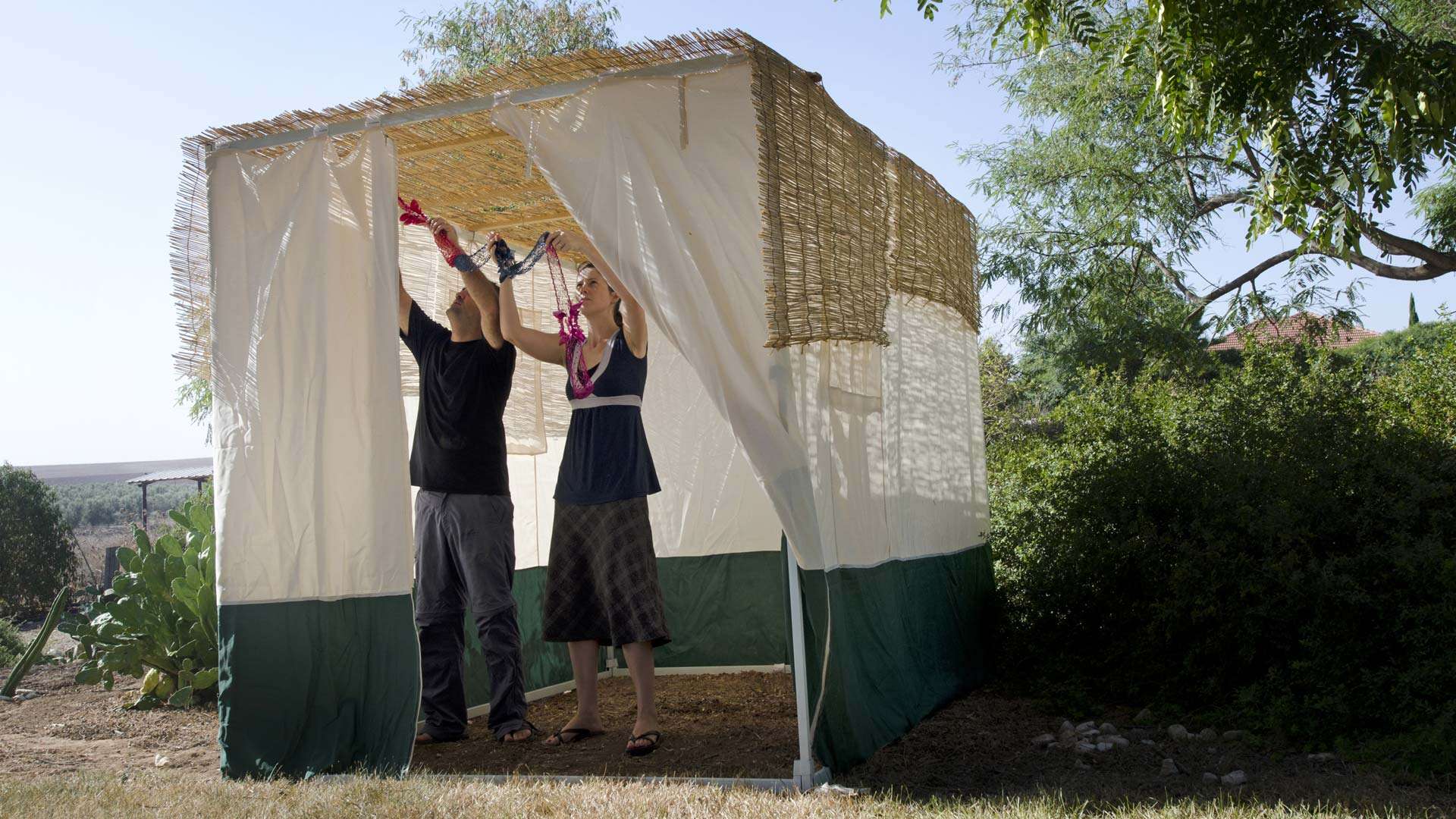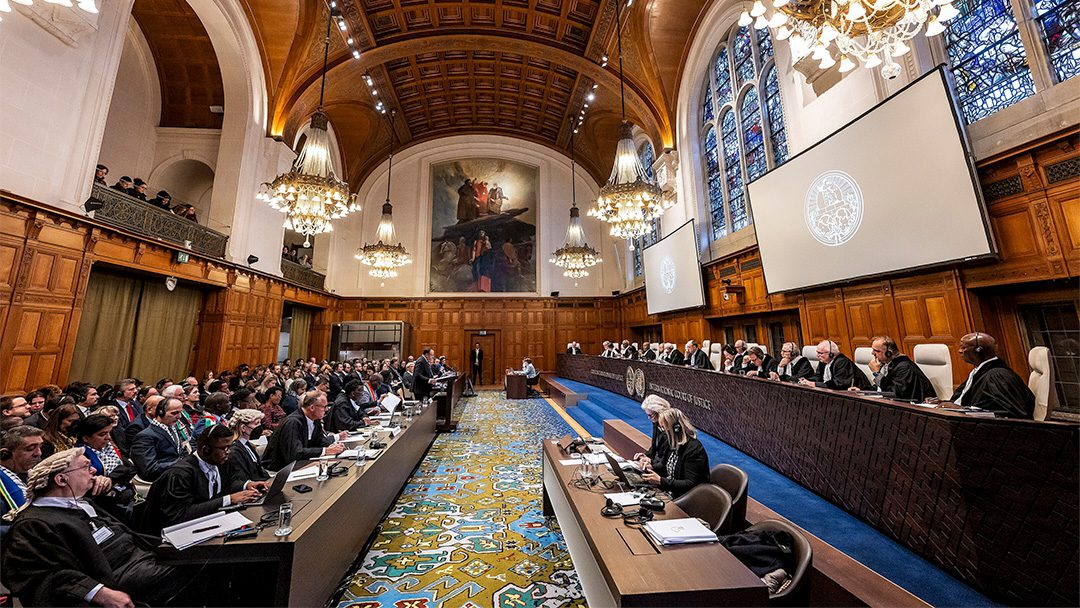A Bette Midler song became quite popular some 30 years ago. I cannot say that I remember much of the song, but the chorus that was repeated over and over had these words—“God is watching us, God is watching us, God is watching us from a distance”.
But the Bible reveals to us not a distant God, but one who in Jesus, as we celebrate over Christmas, broke through time and space to become intimately close to us – Immanuel, which means “God with us”. This is in fact a thread running through the entire Old Testament as well.
One of the clearest images we get in the Old Testament of the desire of God to be in close relationship with His people is the tabernacle. The word “tabernacle” basically means dwelling place or habitation, and it was built after God brought Israel up out of Egypt.
The tabernacle was a tent—an important point. Israel at the time was wandering through the desert living in tents. And so God, desiring to be present with His people, chose for His dwelling not a temple built of marble or stone, but a tent.
But most importantly, the tabernacle was a place where people could meet with God. It was a place where they would go to pray, to ask forgiveness for their sin, and amazingly to communicate with the Creator of the world.
Earlier in the Exodus account of their wilderness wanderings, we see how the Israelites got tired of waiting for Moses up on the mountain, so they decided, rather than waiting for God’s presence, to make a god of their own in the form of a golden calf.
How often that happens with us! We do not see God responding quickly, or in the way, we would like, so we turn our attention to other things. We as it were set up “dwelling places” for things besides God. Things such as careers, our children, money, possessions, fame, pleasure, take over the tabernacle made for God.
But God is a forgiving God who wants His people to enjoy an intimate relationship with Him—and He with us. We read of Israel in a positive light later in Exodus as the people brought their offerings for the tabernacle’s construction. Israel longed for God to come and dwell with them. And so they gave of their lives, their talents, their possessions. They brought so much that Moses had to tell them to stop!
The sukkah is a deliberately temporary and somewhat flimsy structure
And God came down! The book of Exodus climaxes, not in the plagues, the parting of the Red Sea, or even in the Ten Commandments. All these are preliminary steps setting up the last chapter when: “…the cloud covered the Tent of Meeting, and the glory of the Lord filled the tabernacle….. So the cloud of the Lord was over the tabernacle by day, and fire was in the cloud by night, in the sight of all the house of Israel during all their travels.” (Exodus 40:34,38)
And so it was that the holy God brought His people out of Egypt – and the yearning of His heart was as ever to dwell with them. Grace and forgiveness are written all through this! The rest of the Old Testament is really a continuation of the themes seen in Exodus – God desiring to dwell with His people, to be their God; and the people’s response to this – their desire to have God dwelling with them.
The story of the Israelites, whether in the wilderness or in the land of Canaan, is also our story. Their experience of God is echoed in our own experience of One who is altogether lovely and gracious and forgiving.
And yet God is never less than altogether holy and just. As the Jewish people dwell for a week in their sukkot during the Feast of Tabernacles, they have plenty of opportunities to reflect on their own weaknesses and frailty, calling to mind as they do the disobedience and desert wanderings of their ancestors.
And yet, as we have seen, God is full of compassion and mercy. Lamentations 3:22-23 says it all: “Because of the Lord’s great love we are not consumed, for His compassions never fail. They are new every morning; great is Your faithfulness.”
I love the way this is put in Isaiah 57:15, conveying as it does both the holiness and the self-sacrificing love of the Lord: “For this is what the high and lofty One says—He who lives forever, whose name is holy: ‘I live in a high and holy place, but also with him who is contrite and lowly in spirit, to revive the spirit of the lowly and to revive the heart of the contrite.’”
The heart of forgiveness, made possible through the cross of Jesus, is peace and reconciliation with God—relationship restored! As Paul puts it in Romans 5:1, “Therefore, since we have been justified through faith, we have peace with God through our Lord Jesus Christ.”
Spending time in the sukkah is a reminder that God brought the Israelites out of the bondage of their Egyptian taskmasters into freedom. As Christians, we can celebrate how our holy God has rescued us from a life of slavery to sin and brought us into true freedom. And so this really is a joyful celebration.
A devout Jew, on entering the sukkah on the first night of the feast, utters the following prayer: “May it be Your will, O my God and the God of my fathers, that You may cause Your divine presence to dwell amongst us and may You spread the Tabernacle of Your peace over us.” There is expressed here the sense among other things of a real dependence upon God.
Our inclination to do wrong – our humanity and our frailty, both moral and physical—is symbolised by the construction around or adjoining Jewish homes of the sukkah, or booth, the most obvious visible sign of the Feast of Tabernacles.
The sukkah is a deliberately temporary and somewhat flimsy structure, intentionally reminiscent of the booths or tents in which the Israelites lived during those long years in the desert. The Jewish people recall the daily dependence on the Lord of their forefathers in the wilderness, and like us are reminded only too well of their own human weakness.
I am reminded of Isaiah 40:6-8, where we read: “All men are like grass, and all their glory is like the flowers of the field. The grass withers and the flowers fall because the breath of the Lord blows on them. Surely the people are grass. The grass withers and the flowers fall, but the word of our God stands forever.”
Paul takes this further by referring to the body we have on earth as a “tent”—but we have something far more glorious to look forward to. In 2 Corinthians 5:1 he says: “Now we know that if the earthly tent we live in is destroyed, we have a building from God, an eternal house in heaven, not built by human hands.”
As I think about this, it seems to me that we really have great cause to rejoice, for the seeming permanency of much in this world truly is an illusion.
Whether it is the global devastation wrought by the COVID-19 pandemic, natural disasters, the senseless terrorism that so often fails to make the headlines because it has become so horrifyingly commonplace, or the sobering realities of living in a deeply broken world, we are constantly reminded that our comfortable lifestyles and even human life itself can be snuffed out in a flash.
How much then we all need to look to the Lord for our security! He alone is our Rock, the unchanging God of all eternity. And more than anything else He wants to “tabernacle” with us His people. May we never put our hope in what the world has to offer.
I encourage you to review your life in the light of the sukkah imagery. Know that God cares about every detail of your life and is aware of every need you have. Trust Him with those needs. Be careful that you do not sideline God in your life. The joy of this feast is the joy of knowing that we were created to live with God – and He with us—in the beauty of His presence and the favour of His many blessings.












0 Comments